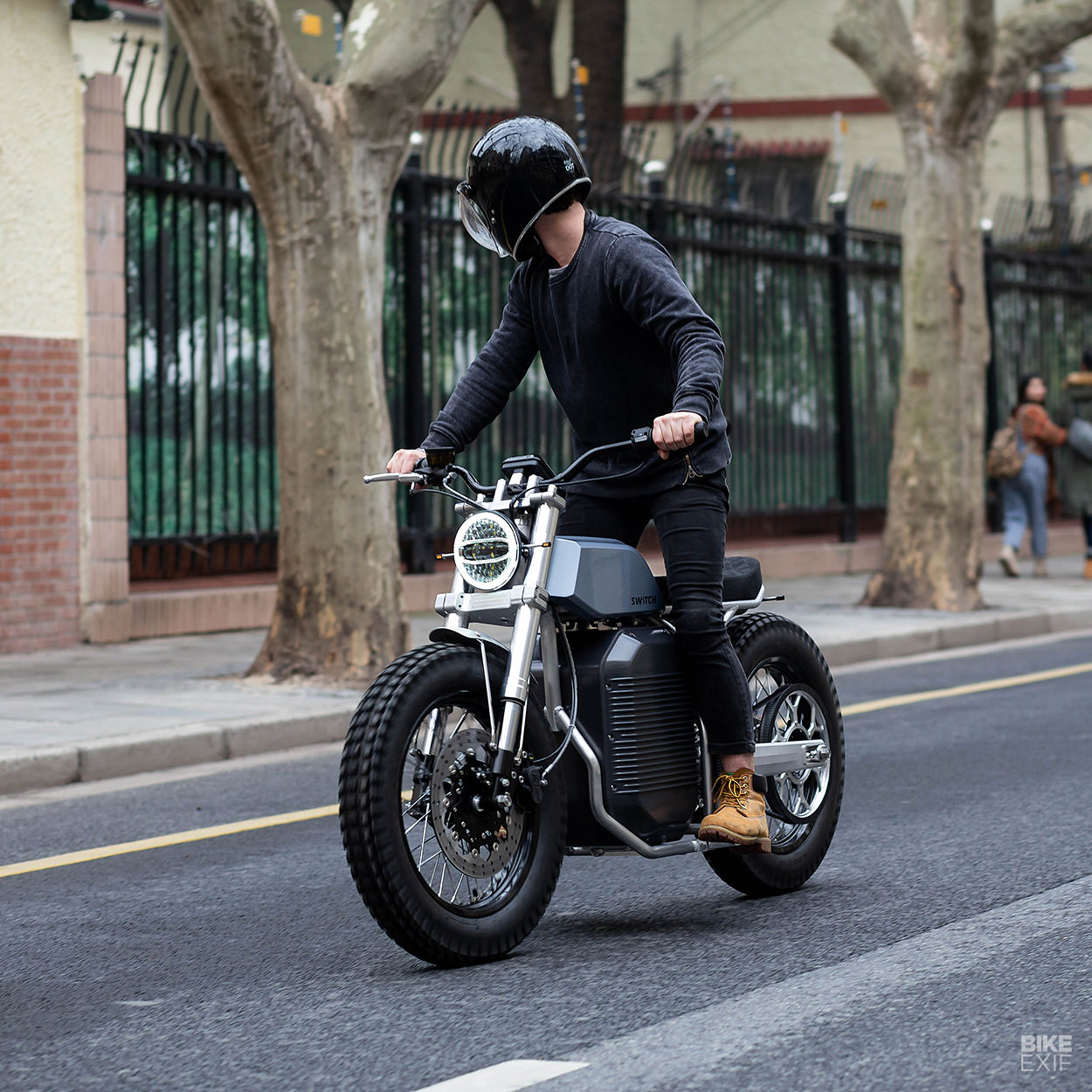
Electric motorcycles still seem like a brave new world in some quarters, but the technology is maturing fast and the novelty is wearing off.
Shanghai-based Kiwi expat Matthew Waddick has been building street-legal electric customs for years now, and knows this well. “Electric bikes are not new anymore,” he says. “You can’t wow people just by being electric—you need to do better than that.”
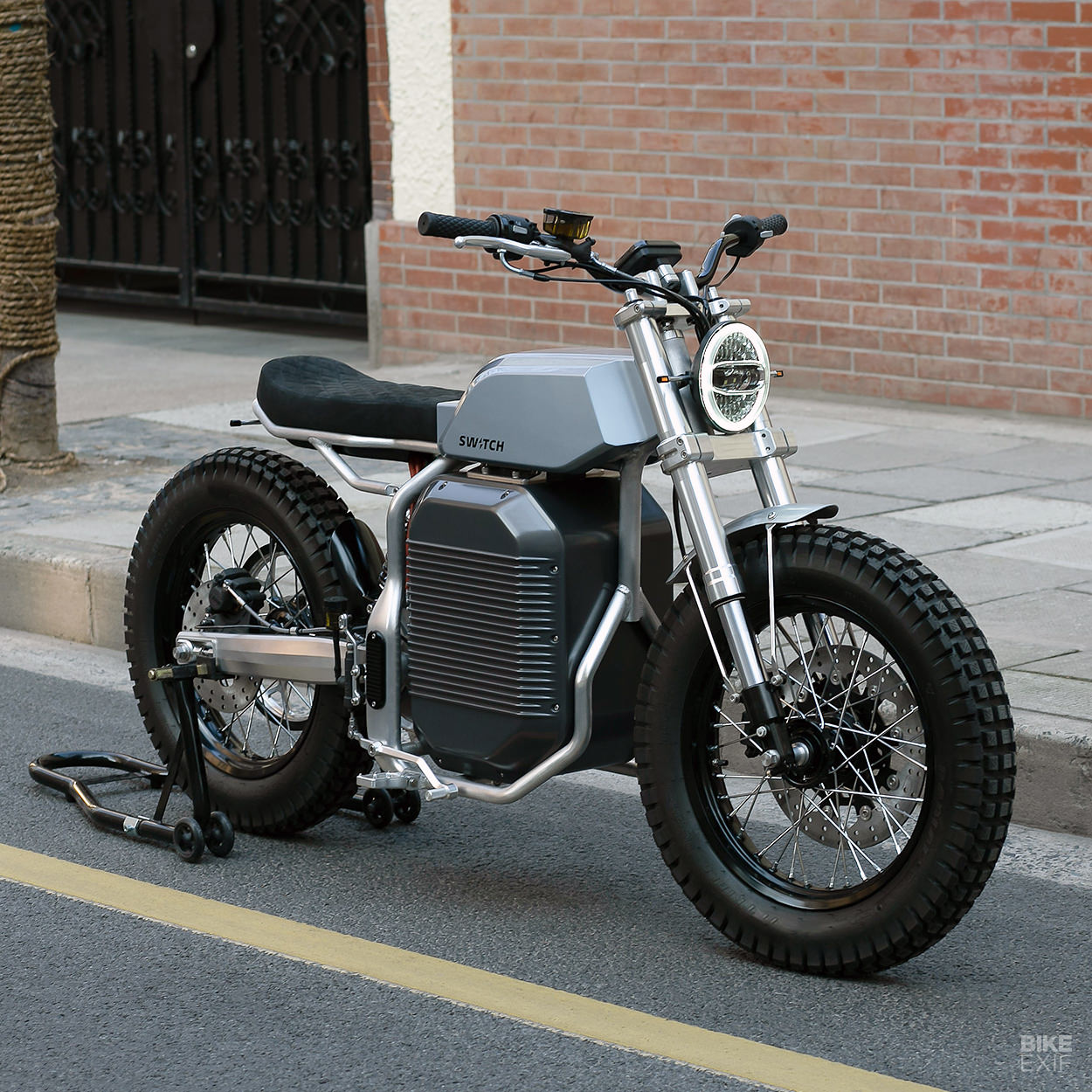
So Matthew’s ramped up his operations, set up a production company called Switch, and just released this stunning ‘eSCRAMBLER’ prototype. And we reckon it looks as good as any petrol-powered bike out there.
That’s because the design comes from Michel Riis, a former Yamaha Japan designer—and Danish flat track champion. The brief was for a mid-size motorcycle with similar proportions to Shanghai Customs’ eTRACKER concept, but with a more powerful motor, belt drive, and a more refined design.
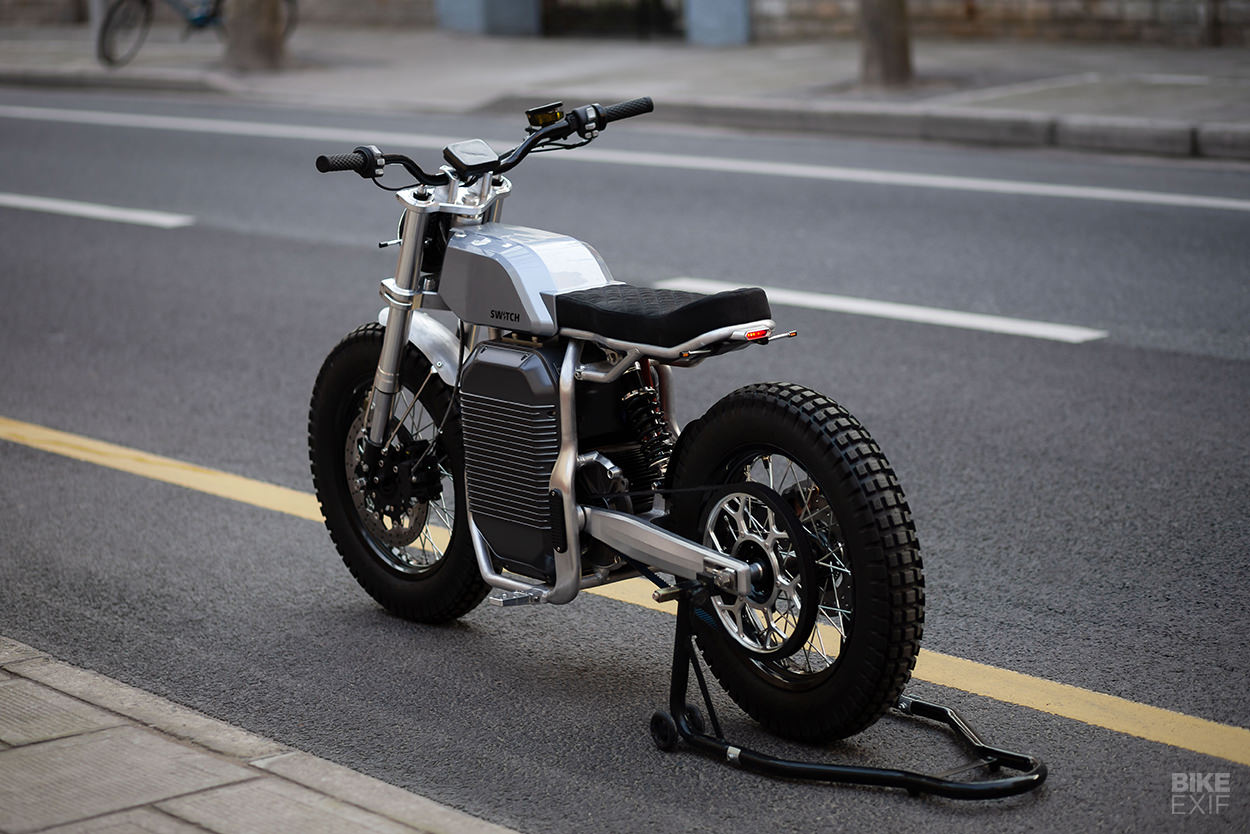
The ‘real world’ performance had to tick several critical boxes: a top speed of around 150kph, 0–100 kph in 3.2 seconds, and minimum range of 150km per charge. And the bike had to be production ready, which meant catering for tooling up, CNC welding jigs and molded parts.
“There are a ton of electric scooters, light electric motorcycles (mainly in the off-road segment), and expensive electric sports bikes,” says Matthew. “But there still isn’t much in this high-level ‘custom styled’ mid-size segment. And nothing I’ve seen in production so far.”
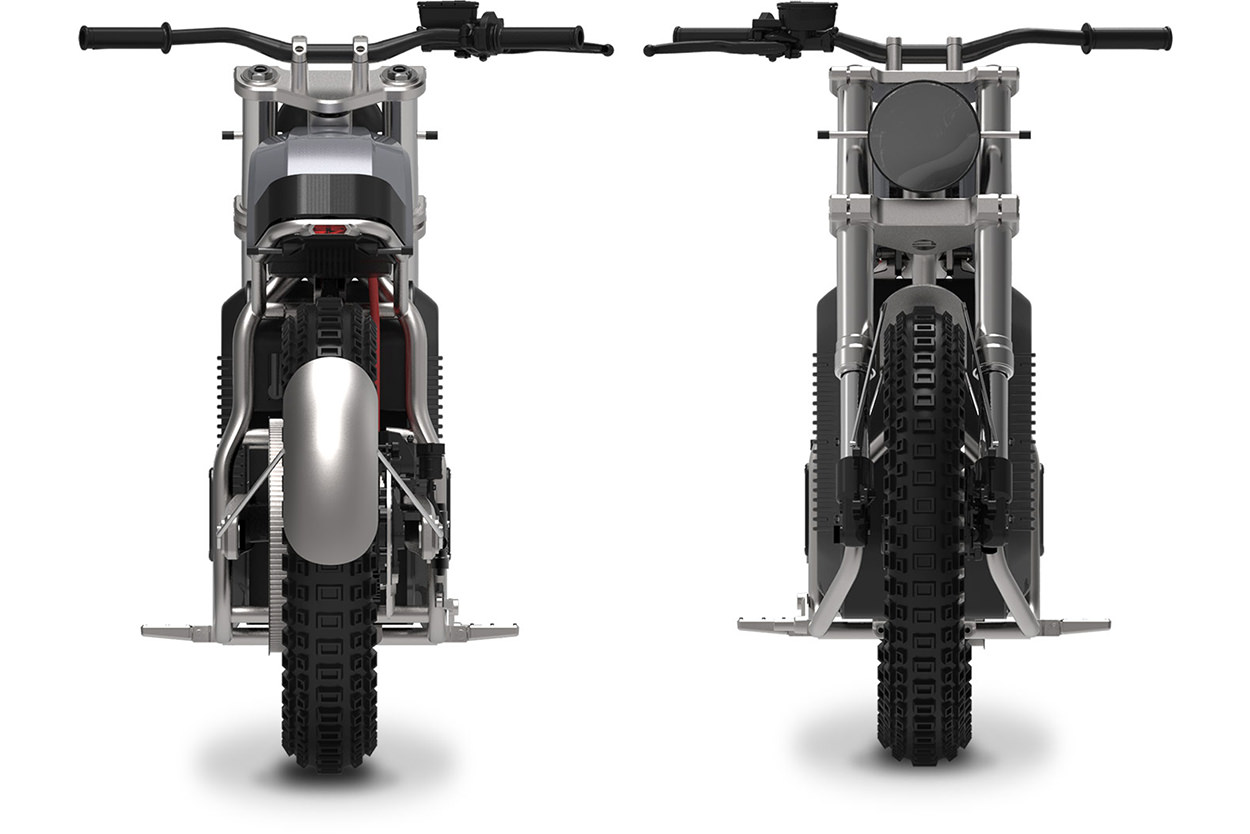
This is mostly due to design challenges: it’s very different to make an electric bike look good while delivering speed and range at a price that buyers can accept.
Michel started off with basic dimensions and proportions, before sketching and working in CAD. “The design was not as easy as it looks—in fact, it was incredibly difficult,” says Matthew. “Making a complex product look simple is one of the hardest things to do, and that’s especially true with electric bikes.”
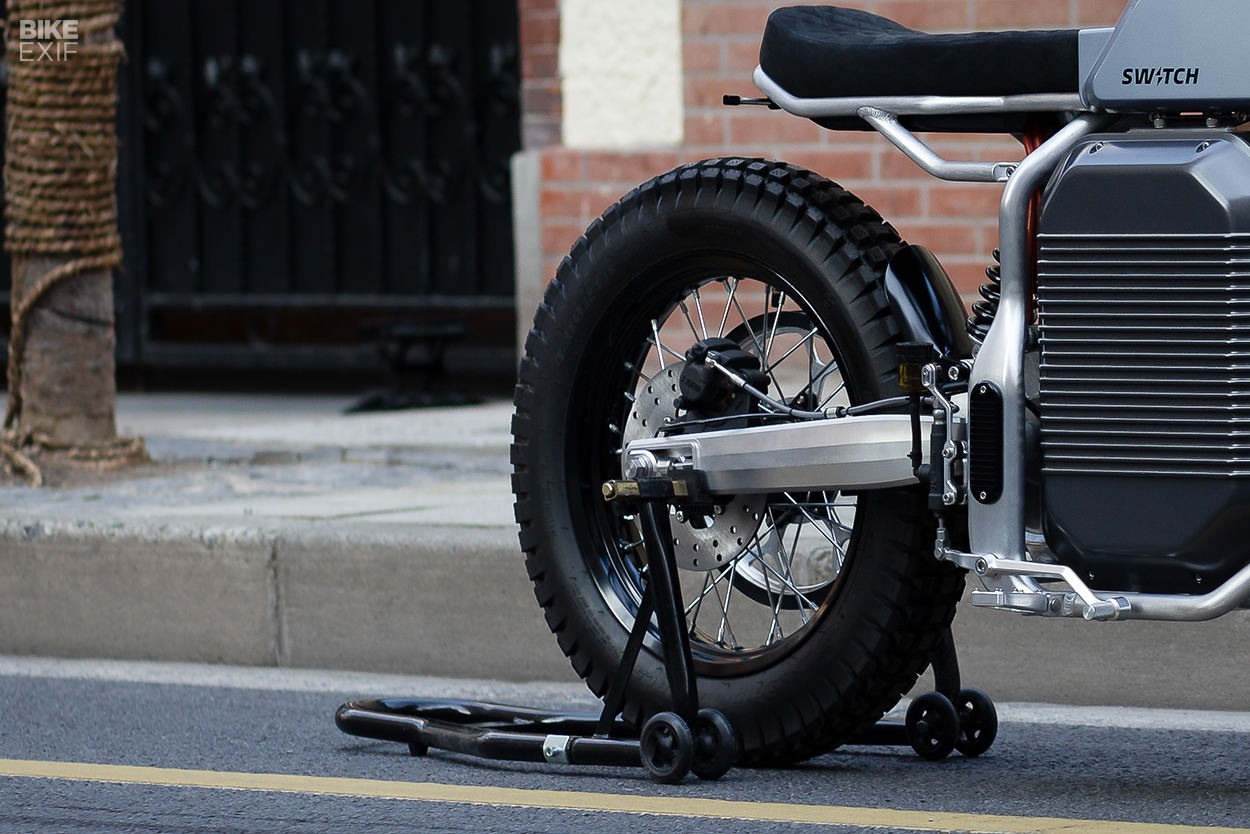
The ‘tank’ on electric bikes always seems to get a lot of comments. “Putting a gasoline tank on is just ridiculous,” Matthew explains. “But at the same time, and particularly with this style of bike, some sort of heritage or natural evolution of design is required.”
“This ‘tank’ is another Michel Riis special and he spent a long time on this with numerous designs and trials before we got it right.”
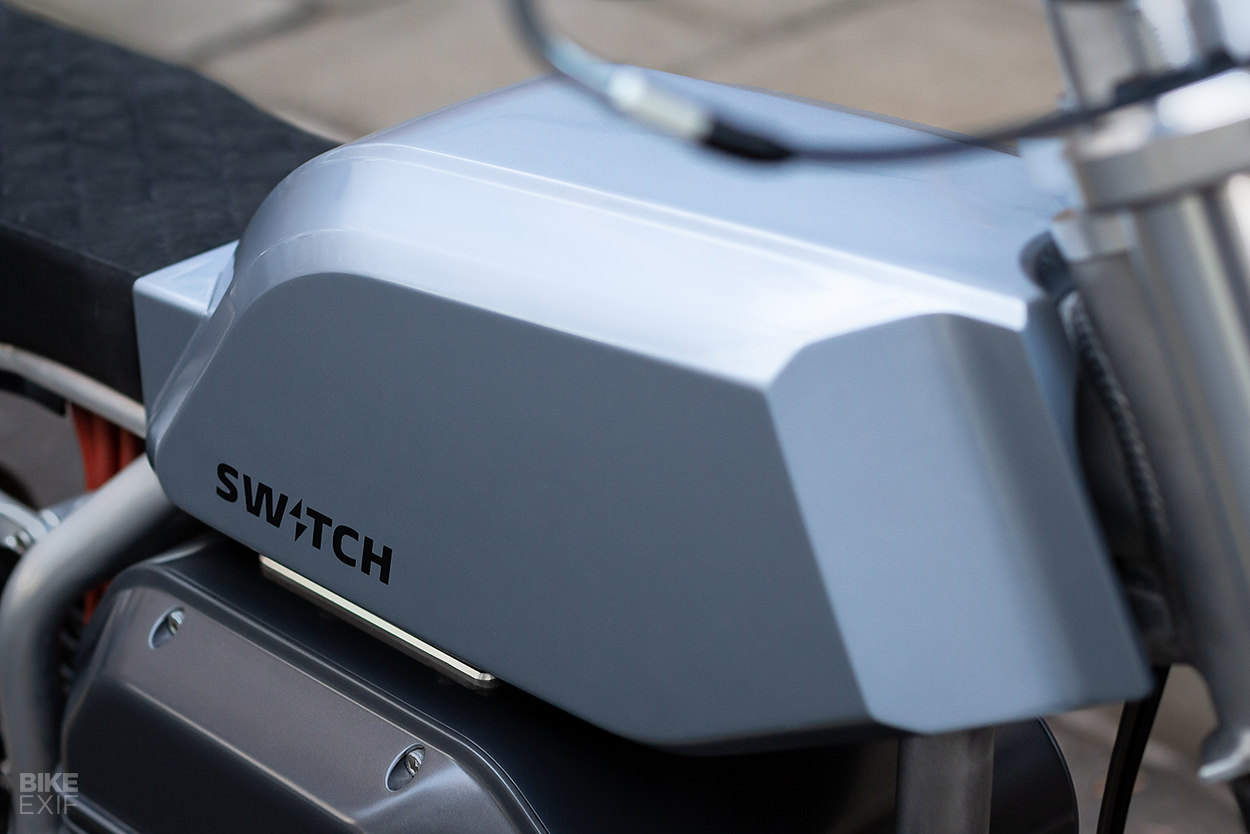
The aluminum battery box is finished in a semi-gloss anodized dark grey, and the ‘tank’ in a Volvo metallic blue to accentuate the sculptured shapes.
The power pack has proprietary internals, and is rated at 11kWh going up to 13kWh—the same as the Zero SR. And the ‘mid drive’ motor outputs a whopping 50kW, which is good news for speed freaks.
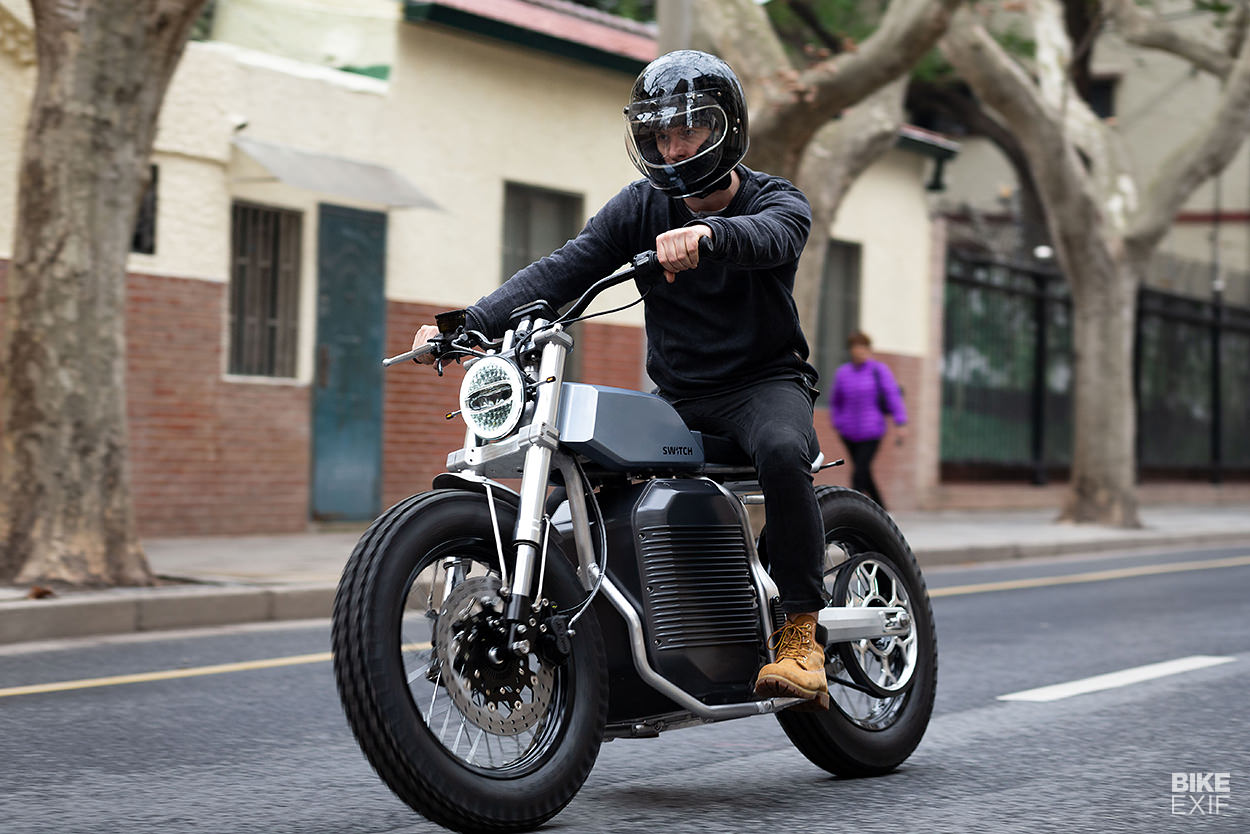
Most electric bikes use a drop in/perimeter style frame, where the ‘box’ slips in the middle and the controller sits on top under a ‘tank.’ But Matthew wanted a double cradle-style tube frame: “I’ve always loved them. They’re super strong and add a retro/soulful element that most electric bikes just don’t have.”
With clever use of lines, bends, radiuses and angles, Michel was able to make it work … with a little help from the engineers who make the Zero frames.
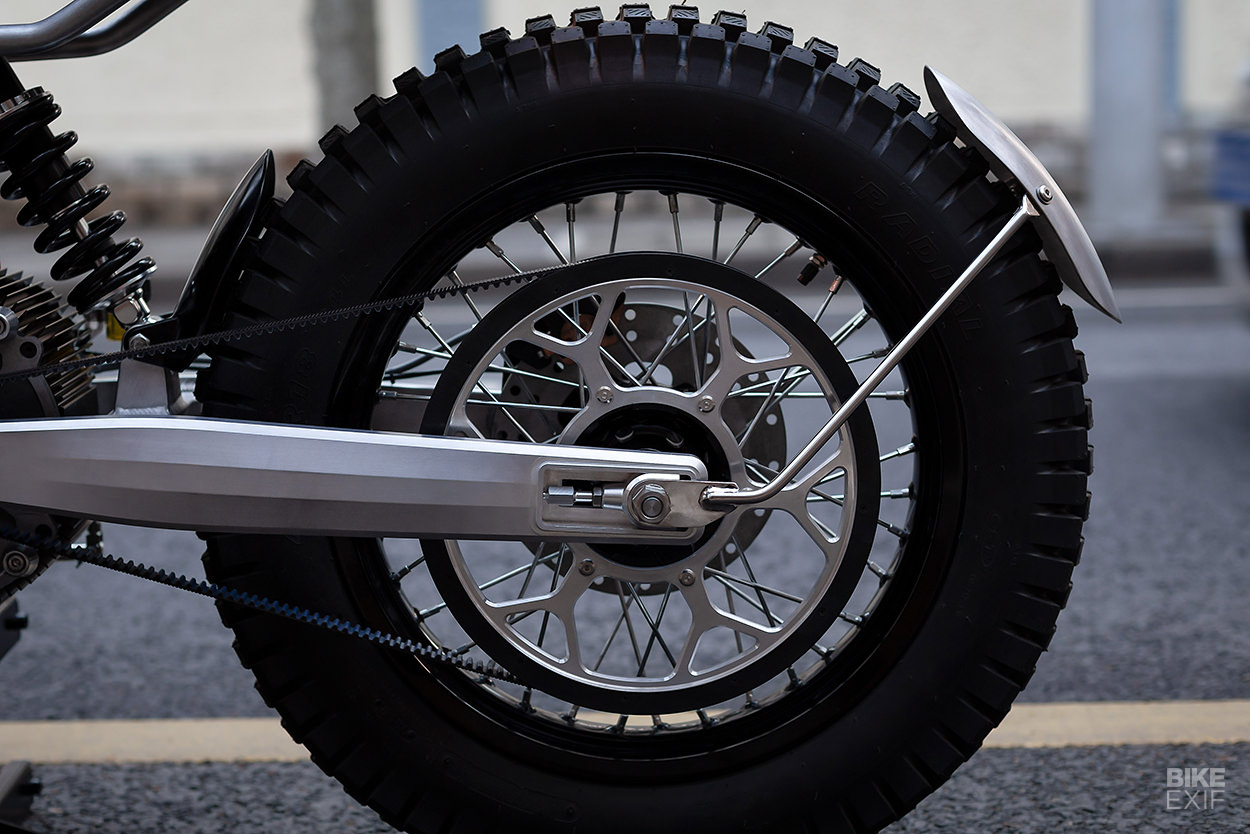
Michel wanted the motor and its axle in the center of the swing arm pivot, with the belt coming directly off the motor—as opposed to a complex gearing or pulley system. Again, it was easier said than done, but carbon fiber belt maker Gates helped to find a solution.
The rims are 18-inch aluminum KTM items, front and back, and KTM forks are matched to a central mono shock. “We plan on releasing a twin shock eTRACKER variant though,” says Matthew, “with other subtle modifications, in the near future.”
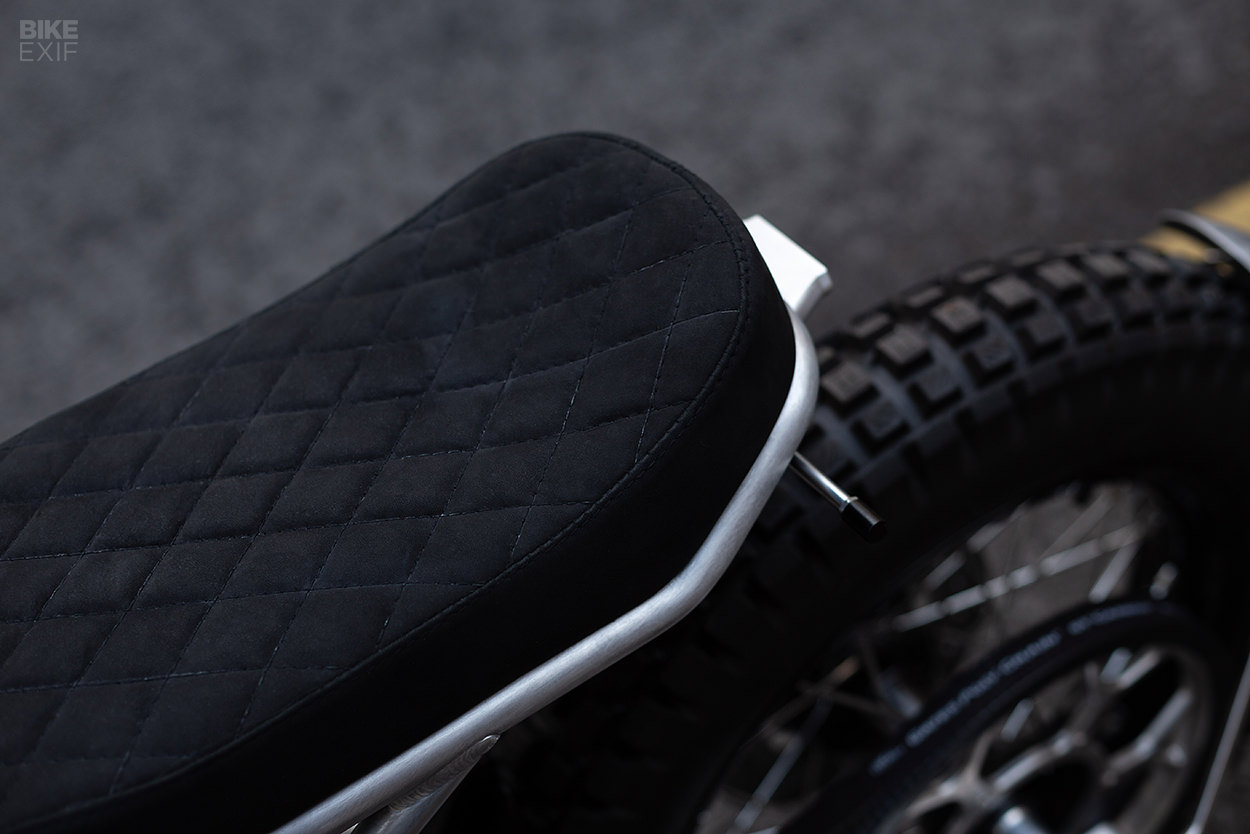
The detail work is as good as the engineering: on not only obvious items such as the leather seat, but also things like the controller cooling and under-seat electronics pan, and CNC’d foot pegs and mounts and brackets.
Matthew and his team still have a little way to go before they are at full power and a 0-100 of 3.2 seconds, but they’re getting there. “The bike has integrated wi-fi, so we are able to see real-time performance globally—lap times as well as battery monitoring and diagnostic information from anywhere in the world.”
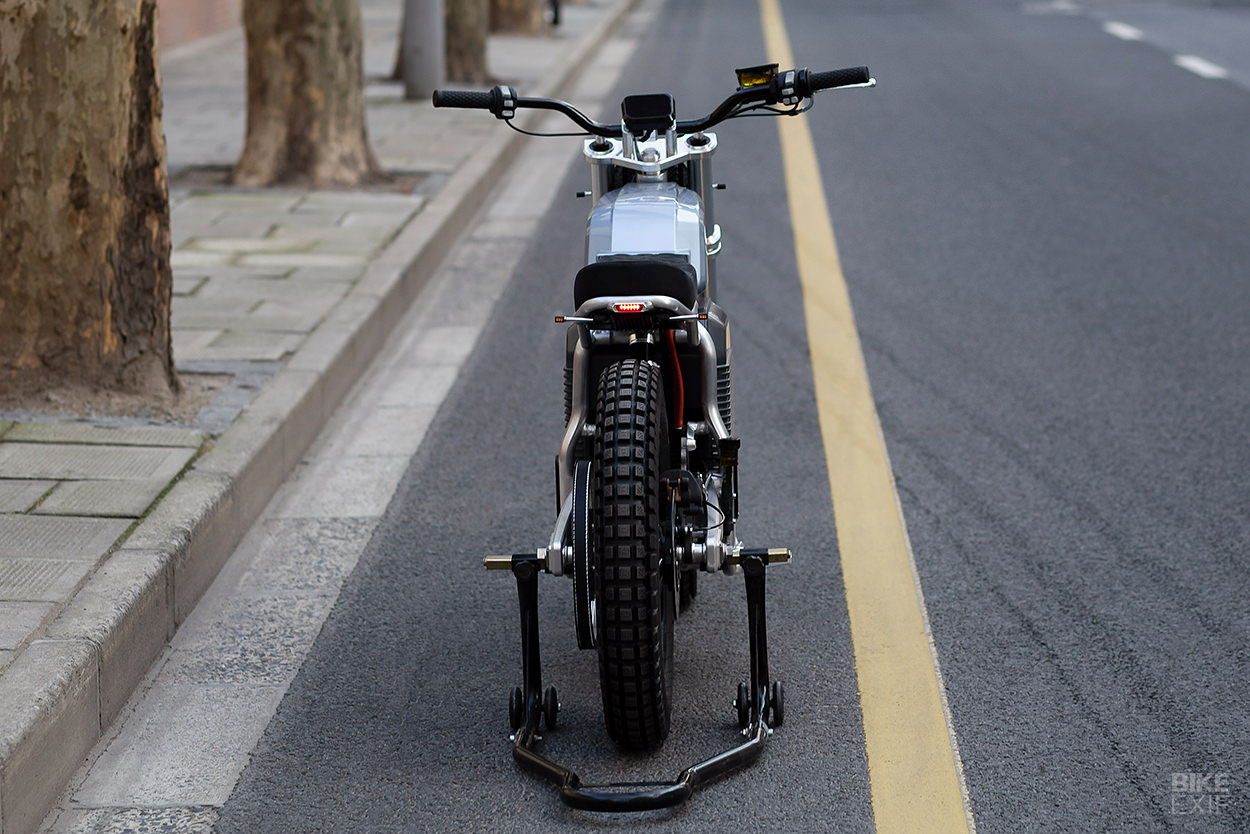
“Michel can be thrashing around the track in Aarhus, Denmark while we can be monitoring, adjusting his settings from Shanghai in real time after each lap.”
The bike is also equipped with built-in GPS tracking, a digital display, three speed modes, cruise control, and a battery level indicator. Plus USB phone charging, and all the other gadgets that you would expect from a high-end electric motorcycle.
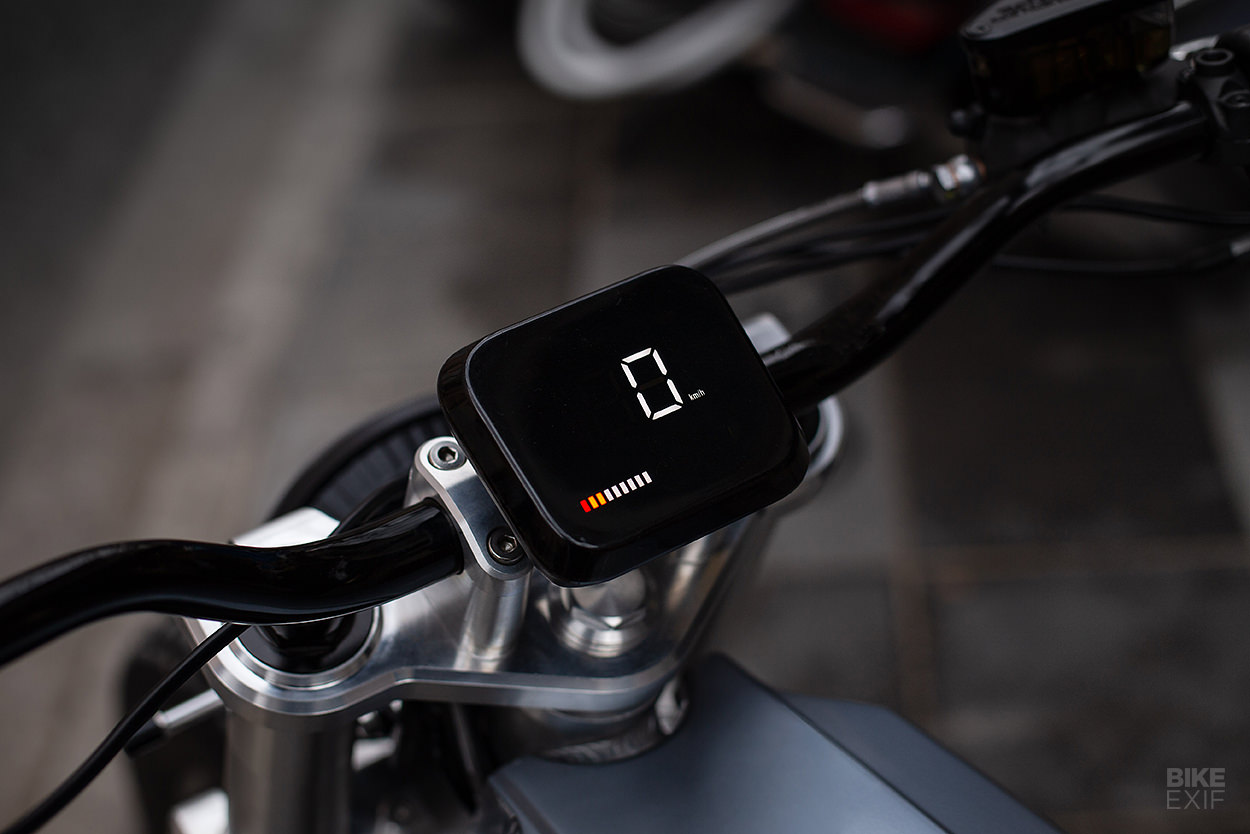
The battery cells come from Panasonic, and the controller company Mopibus (one of the best in the world) is working with Switch on the tech. They’re even developing the ABS system at the moment with Bosch.
The eSCRAMBLER is now entering the homologation stage, which will take several months. “The big thing is the ABS system, which takes a minimum of nine months. You can’t just buy an existing ABS system and hack it on: the whole thing is painstakingly matched and tested under all conditions,” says Matthew.
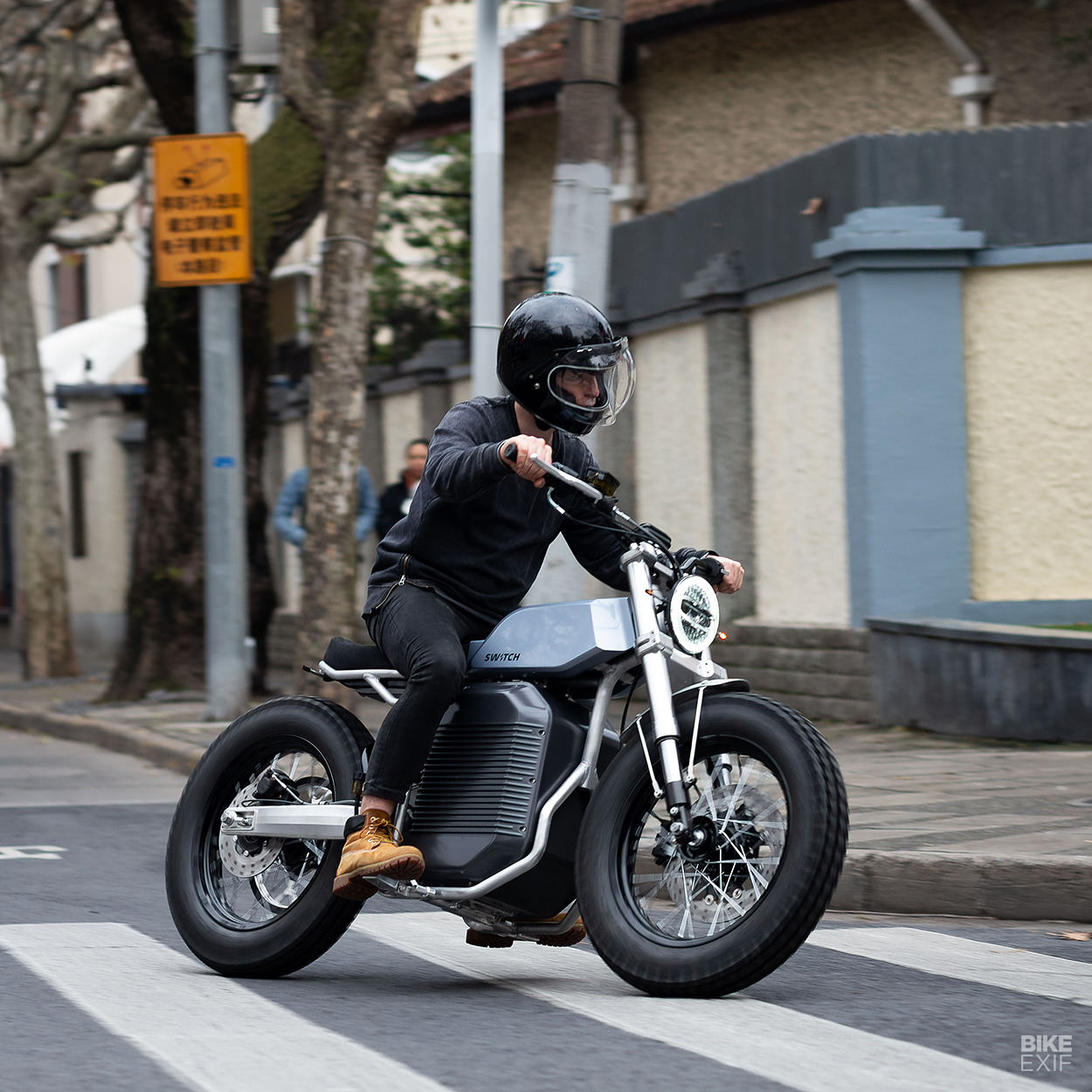
Switch will be releasing the road legal eSCRAMBLER in 2022, but before then, they’ll be running the bike on the Scandinavian flat tracking circuit—with some world champions already lining up to have a thrash.
We’ll be lining up in the queue too, because this is one of the most promising developments we’ve seen in the electric space, outside of the major manufacturers. Here’s hoping that Switch get this one over the finishing line.
Switch Motorcycles | Facebook | Instagram
